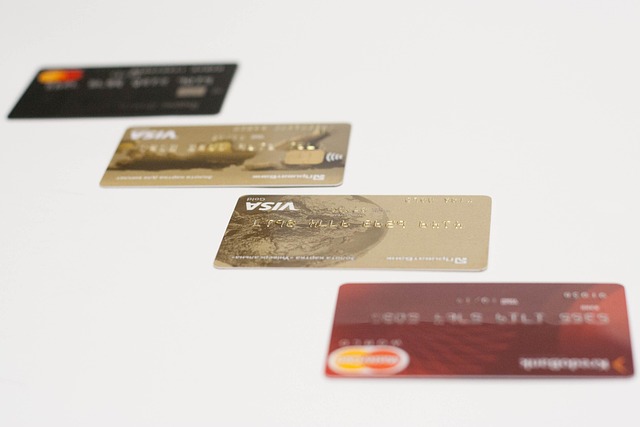Understanding Credit Cards and Application Processes
Credit cards have become essential financial tools for millions of people worldwide, offering convenience, security, and various rewards programmes. Whether you're building credit history, seeking travel benefits, or simply looking for a reliable payment method, understanding the credit card landscape is crucial for making informed financial decisions.

Credit Card Offers: What to Look For
When evaluating credit card offers, several key factors determine which card best suits your financial needs. Interest rates, commonly known as APR (Annual Percentage Rate), typically range from 18% to 29% for standard cards, though promotional rates may be lower initially. Annual fees vary significantly, with some cards charging nothing whilst premium cards may cost £100-£500 annually.
Reward programmes represent another crucial consideration. Cashback cards typically offer 0.5% to 2% on purchases, whilst points-based systems may provide higher value for specific spending categories. Sign-up bonuses often require meeting minimum spending thresholds within the first few months of account opening.
How to Apply for Credit Cards Successfully
The credit card application process involves several straightforward steps, though preparation can significantly improve approval chances. Begin by checking your credit score through free services or your bank’s online platform. Credit scores in the UK range from 0-999 depending on the agency, with scores above 700 generally considered good.
Gather necessary documentation including proof of income, employment details, and residential information. Most applications require your annual salary, monthly housing costs, and existing debt obligations. Online applications typically provide instant decisions, though some may require additional verification.
Before applying, research the card issuer’s typical approval criteria. Some cards target specific credit profiles, and applying for inappropriate cards can result in unnecessary credit inquiries that temporarily lower your score.
Applying for Credit Cards with Fair Credit
Individuals with fair credit scores (typically 580-669 in most scoring models) face additional considerations when seeking credit cards. Fair credit often results from limited credit history, past financial difficulties, or high credit utilisation ratios.
Building credit with fair scores requires strategic approaches. Secured credit cards, which require cash deposits as collateral, often approve applicants with lower scores. These cards function identically to traditional credit cards but minimise lender risk through the security deposit.
Credit builder cards represent another option, typically featuring lower credit limits and higher interest rates but accepting applicants with imperfect credit histories. Student cards may also be available for those in education, often with more lenient approval criteria.
Consider becoming an authorised user on a family member’s account with good payment history. This strategy can help build credit without requiring independent approval, though you’ll need to trust the primary cardholder’s financial responsibility.
Travel Credit Cards and Their Benefits
Travel credit cards offer specialised rewards and benefits designed for frequent travellers. These cards typically earn points or miles on travel-related purchases, with bonus categories including airlines, hotels, and general travel expenses.
Key travel benefits often include airport lounge access, travel insurance coverage, and foreign transaction fee waivers. Premium travel cards may provide additional perks such as priority boarding, free checked bags, and hotel status upgrades.
When evaluating travel cards, consider your travel patterns and preferred airlines or hotel chains. Co-branded cards often provide enhanced benefits with specific partners but may limit flexibility. General travel cards typically offer broader redemption options but may lack partner-specific perks.
| Card Type | Provider | Annual Fee | Key Features |
|---|---|---|---|
| Cashback Card | Barclaycard | £0 | 0.25% cashback on purchases |
| Travel Rewards | American Express | £140 | 2x points on travel, lounge access |
| Premium Travel | Virgin Atlantic | £160 | Companion voucher, priority boarding |
| Fair Credit Builder | Aqua | £0 | Designed for credit building |
| Student Card | Santander | £0 | No annual fee, credit education tools |
Prices, rates, or cost estimates mentioned in this article are based on the latest available information but may change over time. Independent research is advised before making financial decisions.
Making Informed Credit Card Decisions
Successful credit card management extends beyond the application process. Understanding terms and conditions, including grace periods, penalty fees, and reward programme rules, prevents costly mistakes and maximises benefits.
Regular monitoring of your credit card accounts helps identify unauthorised transactions and track spending patterns. Many card issuers provide mobile apps with real-time notifications and spending categorisation tools.
Payment timing significantly impacts your financial health. Paying the full statement balance by the due date avoids interest charges, whilst paying only minimum amounts results in costly interest accumulation. Setting up automatic payments can prevent missed payments that damage credit scores.
Credit utilisation ratios should remain below 30% of available limits, with lower ratios generally improving credit scores. This means maintaining balances under £300 on a £1,000 limit card, though paying balances in full monthly is ideal.
Credit cards serve as valuable financial tools when used responsibly, offering convenience, protection, and rewards whilst helping build positive credit histories. Understanding application processes, comparing offers carefully, and managing accounts responsibly creates the foundation for long-term financial success.




